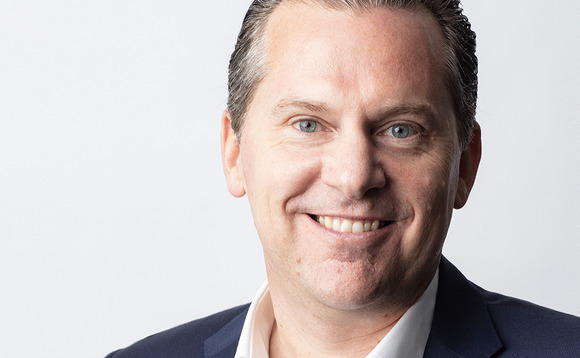
GP Profile: Tyrus banks on quick secondaries turnaround

Currently raising its fifth-generation fund, Tyrus Capital's private equity secondaries strategy has seen growing dealflow and is closing in on several investment opportunities. Katharine Hidalgo talks to Gunter Waldner, the firm's head of private equity
Tyrus expects to hold a close for its fifth-generation secondaries fund by the end of the year on €150-200m. The fund was launched late in 2019, and its predecessor raised €260m.
"I joined Tyrus to pursue a more opportunistic strategy," says Gunter Waldner, Tyrus's head of private equity. "Private equity traditionally has long lock-ups and, for family offices and individuals, 10-12 years is a long time."
Waldner says the firm looks to raise €200-250m every 12-15 months: "We only raise money when we have deals in the pipeline."
Tyrus has a flexible, opportunistic approach, investing in mature or tail-end funds, which are typically 8-14 years along in their fund lives. The portfolios that the firm looks for are cash-generative and it aims to stay away from competitive auctions.
"We set out to take what is best about secondaries," says Waldner. "That minimises the long holding period and makes it an almost semi-liquid product, but with attractive secondaries returns. We try to return 100% of invested capital within three to four years and this materially reduces the opportunity cost of the capital."
To fit this approach, Tyrus's secondaries funds have lives of five years with two one-year extensions, with investment periods of one year.
The PE strategy, established in 2012, is one of four strategies at the firm, alongside events and structured trades, European real estate, and global convertibles. The firm's secondaries strategy saw its first fund launched in 2013, which was fully realised by 2016. The firm's second- and third-generation funds are now in their realisation phases and its fourth-generation fund is currently tracking at 1.2x returns. The entire secondaries and private equity strategy has around €500m in assets under management.
Family-friendly
The firm created the proposition with high-net-worth individuals and family offices in mind; however, it has also received commitments from institutional investors recently. "Our largest investor is now a Swiss pension fund. They like the cash-generative aspect and almost classify it as a yielding product, but a lot of our original base is still there too. Our investors like the optionality that our liquidity provides, allowing them to reinvest their capital." Tyrus employees are also one of the largest investors with an average GP commitment of 20% across the strategy. A majority of LPs in the fund are European, though several hail from the US.
Like most secondaries funds, the firm has seen fluctuation in valuations in both its own assets and potential investments during the coronavirus crisis. "During Q1 we saw valuations, on average, clustering at around 10-15% below pre-Covid-19 levels, with technology-focused funds slightly up. Everyone was surprised by the quick recovery in Q2, but that's my worry, that it may have recovered too quickly. With central banks pumping so much money into the market, the risk is that some of these valuations will be a little bit out of step with the real economy."
Waldner says an advantage of Tyrus's strategy is the deal size that the firm looks at, which is smaller than traditional secondaries firms, such as Harbourvest and Coller Capital, deploying equity tickets of €5-15m. He says such firms are investing more in early secondaries so they can deploy larger tickets: "In our niche we have very little competition; we like to be opportunistic and sector- and size-agnostic, but we always target quality – both in terms of managers and the underlying assets."
Following a brief drop in investment activity, the firm is now investing at a comparatively high rate. "It was pretty quiet in Q1," says Waldner. "We only did one deal from an endowment, but since then there has been a flood of new opportunities. Everyone was waiting for Q2 NAVs to come out and once they did in mid-August, we saw a big increase in deals. Recently,we've seen one new transaction coming in a day and we are working on a few that could close before 2021."
The sector-agnostic firm is working on a variety of types of transactions, including traditional LP interests, some GP-led deals and a pre-IPO opportunity. In the latter situation, 80% of the fund has already been realised, a typical, mature investment for Tyrus. Waldner believes one remaining asset in the renewable energy sector could list within the next six to nine months.
"We're bullish on the company," he says. "This is a good example of our bottom-up, research-based approach. Even if nothings happens for two to three years, there's still some upside left, and if the IPO does happen, we could make an extra 1x money on additional upside," Waldner says.
One small portfolio of LP interests that Tyrus is considering purchasing used to be in a fund worth hundreds of millions as a portfolio. "What is left is a small stub that they need to sell," he says. "They've had their money back already and are less price sensitive." The firm is targeting a discount on the stake of up to 40%.
Key People
Gunter Waldner joined Tyrus in 2012 as head of private equity and continues to lead the firm's secondaries strategy. Previously, he spent five years in senior positions in AlpInvest Partner's European secondaries team, where he was responsible for deal sourcing, structuring and execution of transactions, and portfolio management, as well as developing and raising AlpInvest's first co-mingled secondaries fund.
Mario Kozma joined Tyrus in 2015 as a portfolio manager. Prior to that, he was chief investment officer at Dubai-based Belhoul Investment Office, and before that, investment manager at Inter-Ikea Treasury. He has experience in sourcing, analysing, structuring and executing primary and secondary transactions, covering developed and emerging markets.
Latest News
Stonehage Fleming raises USD 130m for largest fund to date, eyes 2024 programme
Sponsor acquired the public software group in July 2017 via the same-year vintage Partners Group Global Value 2017
Stonehage Fleming raises USD 130m for largest fund to date, eyes 2024 programme
Czech Republic-headquartered family office is targeting DACH and CEE region deals
Stonehage Fleming raises USD 130m for largest fund to date, eyes 2024 programme
Ex-Rocket Internet leader Bettina Curtze joins Swiss VC firm as partner and CFO
Stonehage Fleming raises USD 130m for largest fund to date, eyes 2024 programme
Estonia-registered VC could bolster LP base with fresh capital from funds-of-funds or pension funds









